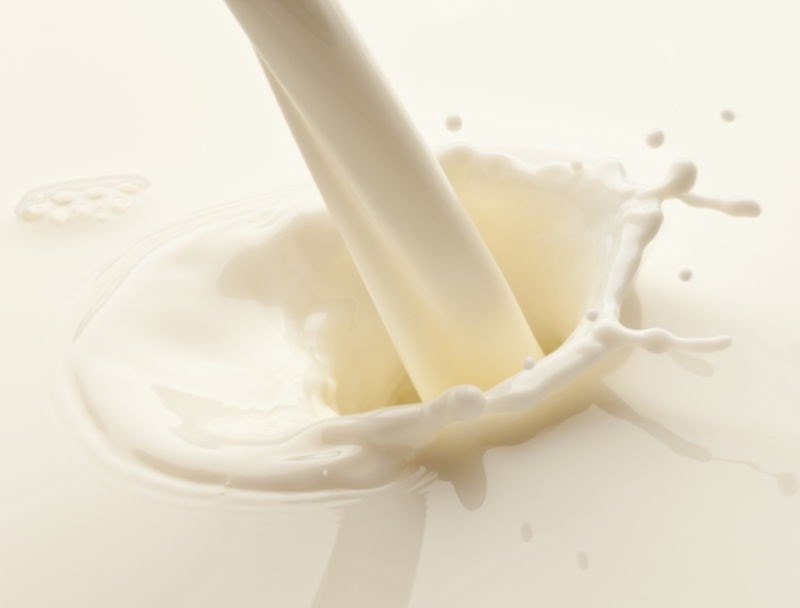Could Probiotics Help with Weight Loss?
Weight gain has been rising exponentially for many years, causing both physical and emotional problems for those affected. According to the health survey for England in 2019, since 1993 the proportion of adults in England who are overweight or obese has risen from 52.9% to 64.3%, and the proportion who are obese has risen from 14.9% to 28.0%1. A 2021 global study across 30 countries found that the average weight gain among those who said they had gained weight during the COVID-19 pandemic was 6.1kg2.
This article explains eveything you need to know about how your gut microbiome and weight are linked, and the best probiotics for weight loss:
- Gut bacteria and weight loss
- Which are the best probiotics for weight loss?
- How do probiotics for weight loss work?
- How long does it take for probiotics for weight loss to work?
- Which are the best probiotics for menopause weight loss?
- Prebiotics and weight loss
- Probiotics for bloating
- Key takeaways
Diet ‘fads’ seemingly come and go, with every new diet plan, book or app promising life-changing and sustainable results. But the truth is, that many of these diets fall short of their claims, particularly over the longer term, leading many people to wonder what they are doing wrong. Could it be that there is a missing link, and we have been looking in the wrong places for weight loss strategies? Emerging data indicates that it is possible that the gut microbiome may hold some answers to this elusive weight loss issue.

Which are the best probiotics for weight loss?
As we know, all strains of probiotics have unique properties and help with different things. When it comes to weight loss it seems that strains within the Lactobacillus genus have more ability to make a difference.
There have been some interesting findings to support the use of Lactobacillus rhamnosus GG in modulating excessive weight gain in infants and young children when taken prenatally14. In 2010 study 159 women were randomly assigned to receive either the probiotic L. rhamnosus GG or a placebo for 4 weeks before expected delivery until 6 months postnatally. Anthropometric measurements of the children were then taken intermittently from age 3 months up to age 10 in 72% of the children. The perinatal probiotic supplement appeared to moderate the initial phase of excessive weight gain (up to age 48 months), especially among children who later became overweight. Additionally, at age 4 the probiotic supplement group tended to reduce the birth-weight-adjusted mean body mass index.
You may like to read about further research behind the strain Lactobacillus rhamnosus LGG® on our Probiotics Database: Lactobacillus rhamnosus LGG®
Two other Lactobacillus probiotic species, Lactobacillus amylovorus and Lactobacillus fermentum, have been associated with a reduction in body fat mass7. In one study a group of 28 overweight individuals consumed yoghurt containing either Lactobacillus amylovorus, Lactobacillus fermentum or no added probiotic (the control group) on a daily basis for six weeks. Participants in the L. amylovorus group reduced their total body fat mass by 4% on average, while those who consumed the yoghurt containing L. fermentum saw a 3% decrease. The control group acgieved a body fat loss of 1% on average.
Another genus of probiotic bacteria, Bifidobacterium, have also been trialled as a weight loss intervention. Two studies have reported significant reductions in BMI and body fat percentage when participants consumed yoghurts supplemented with multi-strain probiotics, including Bifidobacterium lactis BB-12®, compared with control groups.
A 2014 study used the combination of Lactobacillus acidophilus LA-05, Bifidobacterium lactis BB-12®, and Lactobacillus casei DN001 over an 8-week period. They reported that the overweight and obese individuals who consumed yogurt supplemented with probiotic bacteria in conjunction with a low calorie diet had significantly greater reduction in leptin levels than other participants15.
A more recent study in 2020 focused on overweight and obese women. The participants undertook 8 weeks on a low calorie diet, either with or without a high protein probiotic yoghurt supplement. The group taking the probiotic yoghurt, supplemented with L. acidophilus LA-05 and B Lactis BB-12®, reported lower BMI and a greater reduction in waist circumference than the control group16.
Healthcare professionals can read more about the strains used in this research over on our Probiotics Database: Bifidobacterium lactis BB-12® and Lactobacillus acidophilus LA-05
Gut bacteria and weight loss research
Possible connections between gut bacteria and weight management are growing. It is already known from earlier studies performed on mice that certain species of bacteria in the gut can cause weight gain, and other species seem to promote weight loss. This was originally shown when researchers transplanted some of the gut microbes from overweight mice to thin mice, and some of the gut bacteria from thin mice to overweight mice, proving that altering the gut environment caused the thin mice to put on weight, and the overweight mice to lose weight3.
Research has also been done on the links between gut bacteria and weight loss in humans. A 2017 Nordic study looked at whether the composition of two groups of bacteria in the participants gut microbiota would influence the outcome of the different weight loss programs. In this case the participants with a higher proportion of Prevotella than Bacteroides lost significantly more weight in 26 weeks when following a New Nordic Diet (NND), high in fibre and wholegrains, than those on the Average Danish Diet8. For the next six months all the participants were instructed to follow the NND diet. Those people with a lower proportion of Prevotella than Bacteroides regained an average of 2.76kg, showing that one type of diet does not fit all!
This isn’t the first investigation into gut bacteria and how easy, or difficult, people find losing weight. Back in 2013 a small-scale Mayo Clinic study looked at the gut bacteria of 26 people. Their findings were of great interest, as they discovered that the gut bacteria of those people who found it more difficult to lose weight differed to that of people who were able to lose weight easily5. They identified one specific genus of bacteria, Phascolarctobacterium, to be more closely linked with the ability to lose weight, and a different genus, Dialister, to be associated with the inability to lose weight.
These research studies are one explanation of why some people struggle to drop those extra pounds despite dedicating themselves to stringent diets and exercise regimes.

How do probiotics for weight loss work?
Probiotics have been shown to help improve our digestion and absorption of nutrients from our food, so it’s not too surprising to think that different bacteria may help us to extract more calories and nutrients from our food too.
We know that there is a relationship between a person’s diet and the composition of their gut microbiota10. It appears that that the gut senses alterations in nutrient availability and subsequently changes nutrient and calorie absorption. A 2011 study found that diets containing 3,400 calories a day significantly affected gut microbiota when compared to more typical 2,400 calories a day diets.
Introducing probiotics into an individual’s daily routine results in a greater diversity of bacteria in the gut. Having a greater diversity of gut bacteria is helpful in many regards, particularly when it comes to losing weight. It has been found that people with less microbiota diversity tend to produce less amino acids when on a weight loss diet than those with a greater microbiota diversity6. Amino acids help the body to metabolise food, therefore we want more! It seems that having a greater diversity of bacteria in the gut, which happens when regularly taking probiotic supplements, maintains levels of amino acids in the body when following a weight loss diet. This keeps the body metabolically active, helping with weight loss and body composition.
Additionally, some Lactobacilli strains have demonstrate the ability to reduce free fatty acid absorption, resulting in reduced body fat and increased weight loss18.

How long does it take for probiotics for weight loss to work?
It is generally accepted that slow, steady weight loss means the weight is more likely to stay off long term. It makes sense therefore that taking probiotics for weight loss is also not likely to be a quick fix. Although changes in gut microbiota can be seen after just a few days of taking probiotic supplements, it is generally thought that 12 weeks onwards is when the most significant positive changes can be seen. When it comes to weight loss, a healthy diet and lifestyle goes hand in hand with any probiotic supplementation regime.
Which are the best probiotics for menopause weight loss?
Interest and research into all aspects of the menopause is increasing at a huge rate. Probiotics for menopause weight loss is no exception.
Menopause occurs in women when periods stop due to reduced hormone levels. You reach menopause when you have not had a period for 12 months. According to the NHS, this usually happens between the ages of 45 and 55 but can be earlier or later for some women. Perimenopause is the time, often over several years, when hormones start to fluctuate before periods cease.
Post menopause it is common for women to notice they have gained weight. Weight gain is often accompanied by a change in body shape, with a tendency towards fat being stored on the stomach rather than hips. It is thought that on average women gain 2-5 pounds during menopausal transition11, and some women are at risk for greater weight gains. Weight gain is partly due to alterations in hormones, while for some women adjustments in lifestyle also contributes.
Some studies suggest that women tend to have lower gut microbiome diversity once they have gone through the menopause compared with pre-menopause12. It seems that menopause is associated with a shift toward greater similarity to the male gut microbiome. Exactly how this impacts weight is still to be established.
Currently, there have been no research studies done on single strain probiotic supplementation for women looking to reduce their weight during perimenopause or post menopause. A 5-week trial using a multispecies probiotic alongside dietary changes showed promising results in lowered BMI13. However, the study did not make it clear which strains were present in the supplement tested, so further research is to be required. We know that strain specificity is important when it comes to probiotic bacteria.
Exploration into how much of an impact the gut microbiome has on menopause weight gain, and the best probiotics for menopause weight loss, is still in its infancy. We look forward to further research in this area.
Can gut bacteria influence long-term weight management?
Losing weight is challenging, but keeping it off can be even harder - and new research suggests that gut bacteria might play a role in why many people struggle with weight regain22. A study published in Nature found that formerly overweight mice regained weight more quickly than those that had always been lean, even when eating the same high-fat diet. Scientists believe this is because their gut bacteria "remembered" their past weight, making them more prone to gaining pounds again. While more research is needed in humans, these findings suggest that our gut microbiome could influence not just weight loss, but also long-term weight maintenance. Experts believe that microbiome-targeting approaches, like probiotics, could help support weight management, though other factors like diet, genetics, and lifestyle also play a role.
Prebiotics and weight loss
It is generally accepted that prebiotics, such as FOS, can make you feel fuller, thereby help to reduce food intake which can have a positive knock on effect for weight loss.
A meta-analysis published more than ten years ago concluded there is a lack of robust evidence that prebiotics or synbiotics aid weight loss17. Rather than a disappointing result, this seems to have spurred on researchers to conduct further clinical trials. For example, a 2017 study involving 44 overweight children aged 7-12 years found oligofructose-enriched inulin (a type of prebiotic) to significantly reduce body weight and body fat. Analysis also revealed significant increases in species of the Bifidobacterium genus and decreases in Bacteroides vulgatus within the prebiotic group.
Probiotics for bloating
Whilst a reduction in bloating is not precisely the same thing as weight loss, losing inches from the stomach area is a desire for many people when embarking on a weight loss programme.
A study17 in 2008 followed 41 female study participants, all of whom suffered with IBS-C (IBS with constipation) and complained of abdominal bloating and swelling at least twice per week. The participants were divided in to two groups and given either: a fermented dairy product containing Bifidobacterium lactis DN-173010 or placebo for 4 weeks. The probiotic group saw a significant reduction in both severity of bloating and duration/frequency of the symptom.
Genetically engineered probiotics and weight loss
Scientists are exploring how genetically engineered probiotics could help with weight loss in humans21, but there are still important questions to answer. One big focus is making sure these probiotics are safe for everyone, especially people with health conditions like diabetes or weakened immune systems. Another challenge is preventing the bacteria from spreading accidentally, as not everyone would benefit from appetite-suppressing probiotics. Researchers are working on ways to make these probiotics more targeted and controlled, so they only work when and where they’re needed. If successful, this could lead to a new, science-backed way to support weight management in the future.
Can your genes influence your gut bacteria and weight?
Emerging research suggests that our genes may play a key role in shaping our gut bacteria, which in turn could influence whether we are more likely to be lean or overweight. A Cornell-led study published in Cell analysed the gut microbiomes of 416 pairs of twins and found that identical twins, who share the same genes, had much more similar gut bacteria than fraternal twins, despite growing up in the same environment23. This suggests that genetics play a significant role in determining the types of bacteria in our gut.
One particular bacterial family, Christensenellaceae, was found to be more common in lean individuals. When a specific species from this family, Christensenellaceae minuta, was transplanted into mice, it appeared to protect against weight gain. While more research is needed, this study raises the exciting possibility that personalised probiotics - tailored to our genetic makeup - could one day help manage weight and even predict disease risk.
The link between gut bacteria, heart health, and weight
Some research suggests that the bacteria in our gut may play a role in heart health and body weight24. A study published in Circulation Research analysed the gut microbiomes of 893 adults and found that certain strains of bacteria were linked to healthier cholesterol levels (higher HDL), lower triglycerides, and even lower BMI. While the effect was relatively small, it was significant even after factoring in age, gender, and genetics, suggesting that our gut bacteria may contribute to metabolism and heart health.
Scientists believe this could be due to the role gut bacteria play in processing bile salts and cholesterol, which may help regulate fat levels in the body. However, modern lifestyles - including stress, antibiotics, poor diet, and even birth by C-section - can negatively impact gut bacteria diversity, potentially influencing weight gain and heart disease risk. While probiotics aren’t yet a proven solution for heart health, this study adds to growing evidence that taking care of your gut microbiome could support overall health, including metabolism and weight management.
Key takeaways
All the clinical research discussed above just goes to show how diverse and incredible our guts really are. It’s clear to see that the studies are mounting to suggest that the bacteria in our gut can have an impact on our weight. So, is it possible that soon we might see a probiotic specific for weight loss?
There have been positive developments in the use of probiotics in combination with other ingredients, particularly polyphenols and caffeine19, which could pave the way for further evidence for probiotics and weight loss. However, much research is still to be done to identify exactly which strains of probiotics are best for weight loss.
- Our gut and our weight are linked. People who carry extra weight have significantly different microbiomes to those who do not.
- Research shows that strains of probiotic bacteria within the Lactobacillus genus have most ability to help with weight loss
- Emerging evidence indicates that prebiotics, alongside probiotic bacteria, may be helpful for people looking to improve their blood lipid profile
- A more diverse gut microbiome is connected to improved metabolic health markers
There have been several studies exploring the possibility of using probiotics, and in some cases prebiotics, for weight loss. Although current evidence is inconclusive in terms of suggesting a specific probiotic strain, the early research looks promising, and has encouraged more research in this area.
If you found this article interesting you may also like to read:
Probiotics for sport and fitness
Healthcare professionals may also wish to read our related article over on our Probiotic Professionals site: Probiotics for obesity
References
- https://digital.nhs.uk/data-and-information/publications/statistical/health-survey-for-england/2019
- https://www.ipsos.com/sites/default/files/ct/news/documents/2021-01/actions-and-interventions-for-weight-loss.pdf
- Turnbaugh P, Ley RE, Mahowald MA, Magrini V, Mardis ER, Gordon JI., 'An obesity-associated gut microbiome with increased capacity for energy harvest.' Nature. 2006 Dec 21;444(7122):1027-31.
- David A. Muñiz Pedrogo, Michael D. Jensen, Carol T. Van Dyke, Joseph A. Murray, Jeffrey A. Woods, Jun Chen, Purna C. Kashyap, Vandana Nehra. Gut Microbial Carbohydrate Metabolism Hinders Weight Loss in Overweight Adults Undergoing Lifestyle Intervention With a Volumetric Diet. Mayo Clinic Proceedings, 2018; 93 (8): 1104 DOI: 10.1016/j.mayocp.2018.02.019
- Shoaie, S. et al (2015) Quantifying Diet-Induced Metabolic Changes of the Human Gut Microbiome. Cell Metabolism. 22,2. 320.
- Omar et al (2012). Lactobacillus fermentum and Lactobacillus amylovorus as probiotics alter body adiposity and gut microflora in health persons. Journal of Functional Foods. In press, Corrected proof.
- M. F. Hjorth, H. M. Roager, T. M. Larsen, S. K. Poulsen, T. R. Licht, M. I. Bahl, Y. Zohar and A. Astrup, "Pre-treatment microbial Prevotella-to-Bacteroides ratio, determines body fat loss success during a 6-month randomized controlled diet intervention," International Journal of Obesity, pp. 1-4, 2017.
- Sousa R et al., (2008) Effect of Lactobacillus acidophilus supernatants on body weight and leptin expression in rats. BMC Complementary Medicine & Therapies, 2008; 8: 5.
- Jumpertz, R. et al (2011) Energy-balance studies reveal associations between gut microbes, caloric load, and nutrient absorption in humans. American Journal of Clinical Nutrition. Vol. 94, pp. 58-65
- Lovejoy JC (1998) The influence of sex hormones on obesity across the female life span. Journal of womens health, 7(10):1247-56
- Peters BA et al., (2022) Spotlight on the Gut Microbiome in Menopause: Current Insights. Internatioanl Journal of Women's Health. 14: 1059–1072.
- Szydłowska I et al., (2021) Effects of probiotics supplementation on the hormone and body mass index in perimenopausal and postmenopausal women using the standardized diet. A 5-week double-blind, placebo-controlled, and randomized clinical study. European Review for Medical & Pharmacological Sciences, 25(10):3859-3867.
- Luoto R et al., (2010) The impact of perinatal probiotic intervention on the development of overweight and obesity: follow-up study from birth to 10 years. International Journal of Obesity, 34(10):1531-7.
- Zarrati M et al., (2014) Effects of probiotic yogurt on fat distribution and gene expression of proinflammatory factors in peripheral blood mononuclear cells in overweight and obese people with or without weight-loss diet. Journal of the American College of Nutrition, 33(6):417-25.
- Razmpoosh E (2020) Effect of a low energy diet, containing a high protein, probiotic condensed yogurt, on biochemical and anthropometric measurements among women with overweight/obesity: A randomised controlled trial. Clinical Nutrition ESPEN, 35:194-200.
- Institut Rosell, 2012, in vitro studies
- A. Agrawal, L.A. Houghton, J. Morris, S. Jakob, First published 17 September 2008, 'The effects of a fermented milk product containing Bifidobacterium lactis DN-173 010 on abdominal distension and gastrointestinal transit in irritable bowel syndrome with constipation' Aliment Pharmacol Ther, 29(1): 104-14
- Chung Hea-Jong et al., (2016) Intestinal removal of free fatty acids from hosts by Lactobacilli for the treatment of obesity. FEBS Open Bio, 6(1):64-76.
- https://www.nutraingredients.com/News/Promotional-Features/Probiotic-supporting-weight-management-and-gut-health-by-Mircobiotica-GmbH?source=3&utm_source=newsletter_daily&utm_medium=email&utm_campaign=22-Feb-2023&cid=DM1058812&bid=50360355
- Baba, Y.; Saito, Y.; Kadowaki, M.; Azuma, N.; Tsuge, D. Effect of Continuous Ingestion of Bifidobacteria and Inulin on Reducing Body Fat: A Randomized, Double-Blind, Placebo-Controlled, Parallel-Group Comparison Study. Nutrients 2023, 15, 5025.
- Davies, S. et al. (2015) Findings presented at a meeting of the American Chemical Society, "Incorporation of Therapeutic Bacteria into the Gut Microbiome for Treatment of Obesity"
- Eran Elinav et al, (2016), 'Persistant microbiome alterations modulate the rate of post-dieting weight regain', doi:10.1038/nature20796
- Goodrich, J. K., Waters, J. L., Poole, A. C., Sutter, J. L., Koren, O., Blekhman, R., Beaumont, M., Van Treuren, W., Knight, R., Bell, J. T., Spector, T. D., Clark, A. G., & Ley, R. E. (2014). Human genetics shape the gut microbiome. Cell, 159(4), 789–799. https://doi.org/10.1016/j.cell.2014.09.053
- Jingyaun Fu et al (2015) The Gut Microbiome Contributes to a Substantial Proportion of the Variation in Blood Lipids. Circulation Resarch. Published online 10 Sept 2015
